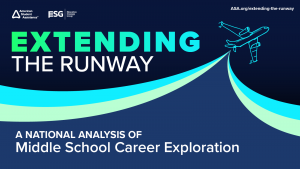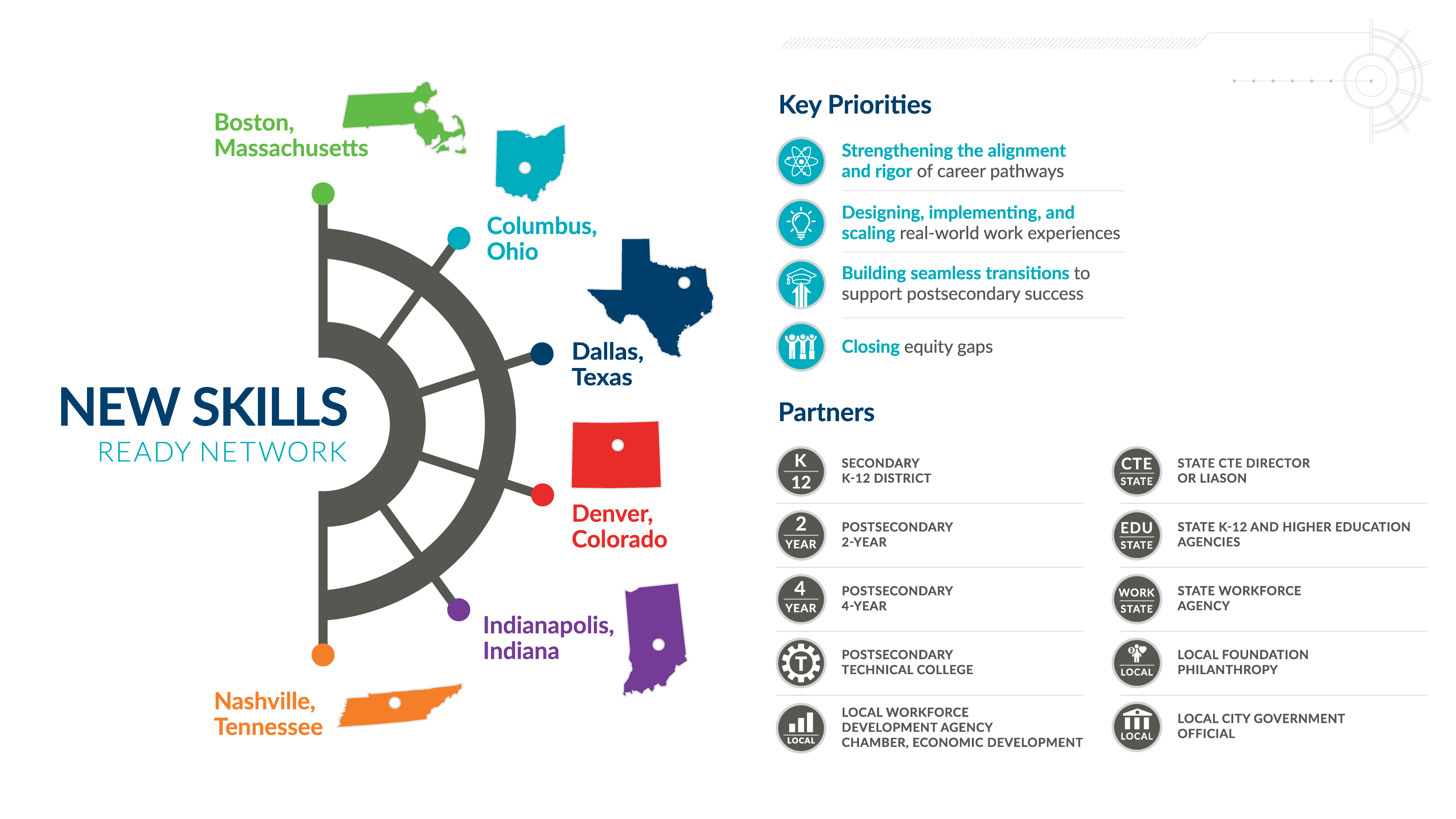The views, opinions, services and products shared in this post are solely for educational purposes and do not imply agreement or endorsement by Advance CTE, nor discrimination against similar brands, products or services not mentioned.
 In recent years, middle school career exploration has gained traction as a foundational element of Career Technical Education (CTE). As many State CTE Directors and leaders know, the Carl D. Perkins Career and Technical Education Act (Perkins V), signed into law in July 2018, for the first time permitted Perkins funding to be used on career exploration programming as early as fifth grade. Here are four strategic actions that states can take to expand and enhance career exploration programs that prepare learners for postsecondary education and career success, based on a recent nationwide study of middle school career exploration programs, commissioned by American Student Assistance® (ASA).
In recent years, middle school career exploration has gained traction as a foundational element of Career Technical Education (CTE). As many State CTE Directors and leaders know, the Carl D. Perkins Career and Technical Education Act (Perkins V), signed into law in July 2018, for the first time permitted Perkins funding to be used on career exploration programming as early as fifth grade. Here are four strategic actions that states can take to expand and enhance career exploration programs that prepare learners for postsecondary education and career success, based on a recent nationwide study of middle school career exploration programs, commissioned by American Student Assistance® (ASA).
Clearly define middle school career exploration and ensure a unified definition is adopted across relevant agencies and partners, including K-12, postsecondary, workforce, and relevant community-based organizations. A quality definition clearly defines middle school career exploration as a strategy that will help learners build their understanding of career interests and expand awareness and understanding of career opportunities, including through hands-on, applied experiences.
Once a clear definition is established, coordinate related and supporting efforts across state leadership, including departments driving academics and instruction, school counseling, CTE, and workforce training. Establish routines for collaboration between programmatic leaders who should be working together to support an overall vision for learner success with elements from each of their programs.
Integrate career exploration into your accountability and data collection systems. The last two years of high school are insufficient for dramatically increasing learners’ readiness for postsecondary and career opportunities. States can leverage program quality indicators in Perkins V and the Every Student Succeeds Act (ESSA) state plans to formally set measurable goals for middle school career exploration, integrating them into existing college and career readiness (CCR) targets. States can also utilize their data collection systems to not only identify middle school career exploration participants and determine their positive placement within high school CTE programs, but also to ensure the quality of programming through evaluations or learner-based software platforms.
The report also highlights seven states that have distinguished themselves by instituting formal accountability mechanisms to influence district and school focus on meaningful career exploration. Although federal changes made through the reauthorization of ESSA allowed states to exercise flexibility in the indicators used to assess districts and schools, only two states—Pennsylvania and Georgia—have used this flexibility to include career exploration as a component in their federal accountability systems. Five additional states—Missouri, Kansas, Utah, South Carolina, and Michigan—have incorporated middle school career exploration into their state accountability mechanisms to assess the quality of delivery of career advisement services or activities.
Assess and address state policies that have the potential to limit learners’ ability to access different career exploration opportunities, including restricting CTE course enrollment by grade level or grade point average minimums.
It’s important to provide innovative and comprehensive career exploration that includes CTE. Only 33 states facilitate exploration via a course or set of courses that can serve as an on-ramp to a CTE pathway, according to ASA’s report. In contrast, the study highlights Utah’s College & Career Awareness Program, which requires a course that enables learners in grades 7-8 to explore high school, college, and career options based on individual interests, abilities, and skills. A team of CTE teachers, school counselors, and work-based learning coordinators teach the course and provide instruction in career development.
This well-rounded, effective approach equips all learners with the information they’ll need to understand their options and make informed, confident decisions about their futures.
Julie Lammers is Senior Vice President of Advocacy and Corporate Social Responsibility at American Student Assistance® (ASA), a national nonprofit changing the way kids learn about careers and prepare for their futures. Julie leads ASA’s philanthropic strategy as well as ASA’s advocacy efforts on both the federal and state level. Julie has been at ASA since March 2010.


 On Tuesday, the House formally reconvened after Congress’ annual August recess. The Senate has been in session since last week and is working to advance a “minibus” funding legislation– a measure containing three of the 12 individual spending bills that compose the federal budget. As a reminder, the Senate Appropriations Committee has
On Tuesday, the House formally reconvened after Congress’ annual August recess. The Senate has been in session since last week and is working to advance a “minibus” funding legislation– a measure containing three of the 12 individual spending bills that compose the federal budget. As a reminder, the Senate Appropriations Committee has  As
As 